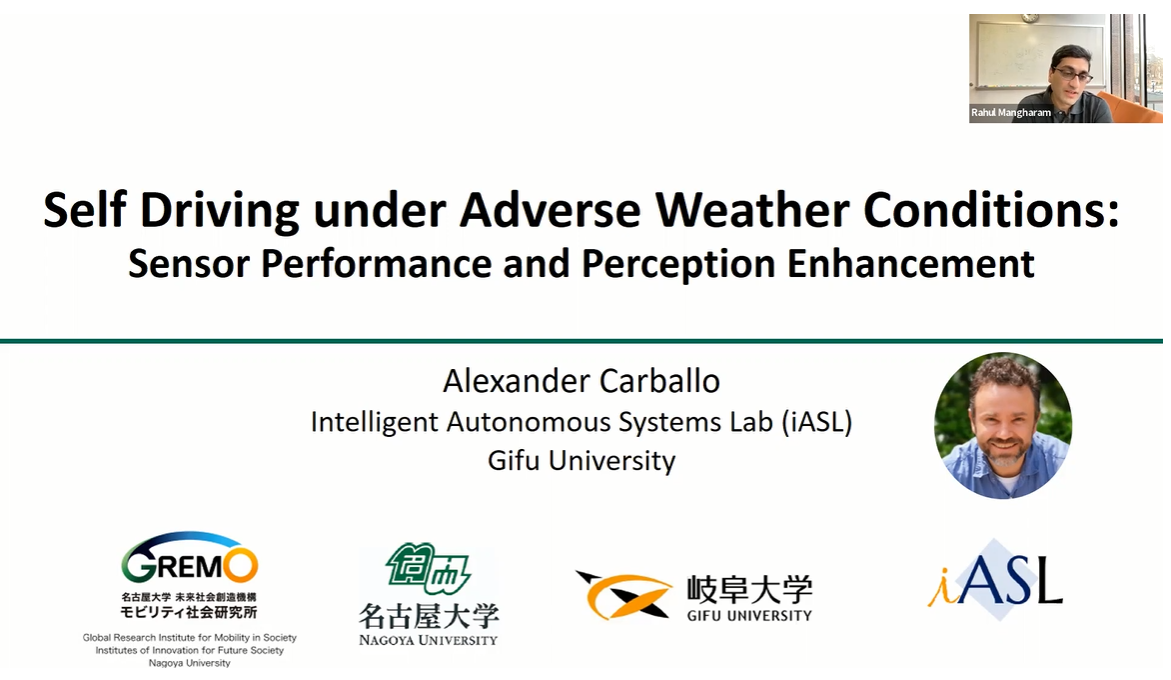Autonomous Driving under Adverse Weather Conditions: Sensor Performance and Perception Enhancement
03/15/2023
The goal of autonomous driving systems (ADS) research is to give safer and economical
mobility options. However, the operational design domains (ODD) of state-of-the-art ADS
constraints the deployment under sunny to cloudy conditions. The weather phenomena
impair the perception and navigation capabilities of ADS, so their availability is limited by
geography and seasons. Furthermore, unstable vehicle control induces a strong feeling of risk
to the passengers. For ADS to continue moving forward to the next era, research efforts are
necessary to enable autonomous cars to get past all the weather.
Our ongoing efforts in Gifu University and Nagoya University aim to understand how the
different functions of an ADS perform under adverse weather conditions, and try to solve
some of the perception, navigation and control challenges to enable operation under such
conditions. Our system features several types of sensor modalities plus state-of-the-art
self-driving software such as Autoware.
Alexander Carballo
Alex is enthusiastic about machine
perception, in particular LiDARs. After his PhD
in 2011, he worked in R&D for a LiDAR
company. In 2017 he joined Nagoya University
as research associate professor studying
driving behavior and LiDAR-based perception.
Finally, from 2022 he joined Gifu University as
associate professor, working in perception
under adverse weather conditions for
autonomous vehicles, where he is leading the
Intelligent Autonomous Systems Lab. (iASL).
Alex also is a research fellow at Tier IV Inc.,
working in education activities around
Autoware and ADS technologies
